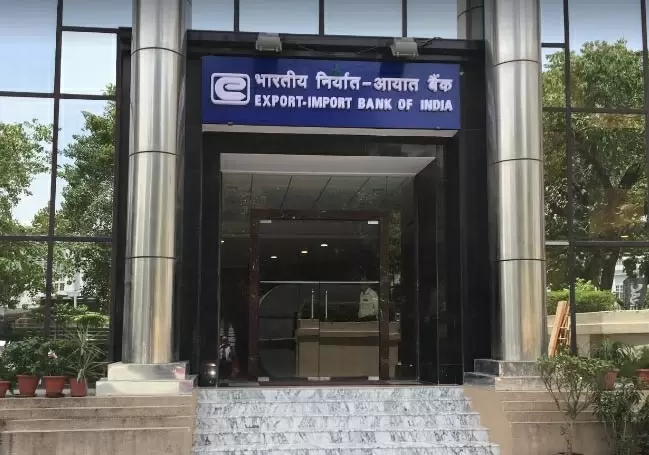'GI tag for Kashmir willow bat may fetch better prices'
Chennai
24-August-2021

Photo:IANS
Differentiating the Kashmir willow cricket bat with Geographical Indication (GI) tag can serve as an important marketing strategy for cricket bats in the export markets, says a study by the Export-Import Bank of India (Exim Bank).
The study, titled "Indian Sports Goods Industry: Strategies for Tapping the Export Potential", was recently released by Finance Minister Nirmala Sitharaman.
"Currently, there are no registered GIs in the sports goods industry, in spite of some products being unique to the country.
"Kashmir willow bat is one such product, which holds significance as it is made from some of the best quality wood in the world," the study says.
The Kashmir willow bats fetch a maximum of Rs 1,000 (approx $15.36) per bat, as against the English willow bats whose retail price range between $220 to $450 per bat in the international markets.
The price differential arises as Kashmir willow bats are considered heavier than their English counterparts, as per the Exim Bank study.
However, while heavy bats have lesser swing, they are about one per cent more powerful than light bats. Kashmir willow bats are also sturdier and have longer use-life.
Watch This TWL Video
These attributes of Kashmir willow bats have not been popularised, and they are often considered an inferior variety of bat, thereby leading to price disadvantages, it said.
"Getting a GI tag for Kashmir willow could help in marketing the locally made cricket bats at the international level, and highlighting its positive attributes," the study said.
Issuing GI to Kashmir willow bats could ensure better product recognition, competitive pricing, better marketing and promotion, and eventually lead to greater exports, it said.
To reap the benefits of GI Status, a GI brand name for Kashmir willow bats also needs to be developed and marketed, and a mechanism needs to be devised for ensuring that all products marketed under the GI brand meet minimum specific standards, the study maintained.
A certification body could be set up to provide certificates of authenticity for the bats, it said, adding that a repository of information about companies/artisans involved in production and exports of Kashmir willow bats could be maintained by the certifying body, to ensure quality and uniqueness of the product.
According to the study, there is increasing dependence on imports of sports goods from China.
A recent report by the Directorate General of Commercial Intelligence and Statistics (DGCIS) corroborates India's excessive import dependence on partner countries, especially China, for sports goods under HS 9506 (articles and equipment of general physical exercise, gymnastics, athletics and sports).
Analysis in the DGCIS study indicates that China offers sports goods to India at relatively cheaper unit rates on an average, when compared to other countries supplying to India.
Moreover, a comparison of unit values of China's exports to India vis-a-vis its exports to other top export destinations in the study also reveals that China is offering the product at a significantly cheaper price to India, as compared to its other key export destinations.
In order to match the unit rate offered by China, domestic manufacturers have to compromise with the quality or cut back on margins, neither of which is a viable option for domestic players, states the study.
There is a possibility that imported Chinese products are of inferior quality than other nations, it said, noting that in that case, a uniform tariff hike may make higher quality imports from other countries unaffordable, and in turn lead to a shift of consumer preference toward products that are of inferior quality.
"Therefore, there is a need to consider increasing the tariff on imports of sports goods from China alone," the study suggests.
An investigation may be conducted by the Directorate General of Trade Remedies to further understand the injury caused to the domestic sports goods industry due to cheaper imports from China, and a relevant duty hike may be put in place to protect the domestic manufacturers, after due evaluation of possible negative shocks that may emerge from such a move, it said.
According to the study, India currently manufactures more than 300 types of sports goods and is one of the largest manufacturers in Asia, after China and Japan.
Exports of sports goods from the country have increased from $166.1 million in 2010-11 to $278.9 million in 2019-20.
As per estimates by Exim Bank, there remains an untapped export potential of $ 227.4 million in the sports goods industry. If realised, it could help exports from the sector reach the $500 million mark.-IANS
More Headlines
Conspiracy Underway To Remove Nitish Kumar, Claims Mukesh Sahani
‘Something Wrong’: SC Questions Madras HC’s Handling of Karur Stampede Case
Sir In Bengal: Eci Identifies 58 Lakh Excludable Voters After Enumeration Phase Ends
Shivakumar Defends Hate Speech Bill, Accuses BJP Of Spreading Division, Hatred Among People
Opposition Moves to Impeach Justice G R Swaminathan; Kanimozhi Cites Loss of Public Trust
Conspiracy Underway To Remove Nitish Kumar, Claims Mukesh Sahani
‘Something Wrong’: SC Questions Madras HC’s Handling of Karur Stampede Case
Sir In Bengal: Eci Identifies 58 Lakh Excludable Voters After Enumeration Phase Ends
Shivakumar Defends Hate Speech Bill, Accuses BJP Of Spreading Division, Hatred Among People
Opposition Moves to Impeach Justice G R Swaminathan; Kanimozhi Cites Loss of Public Trust









